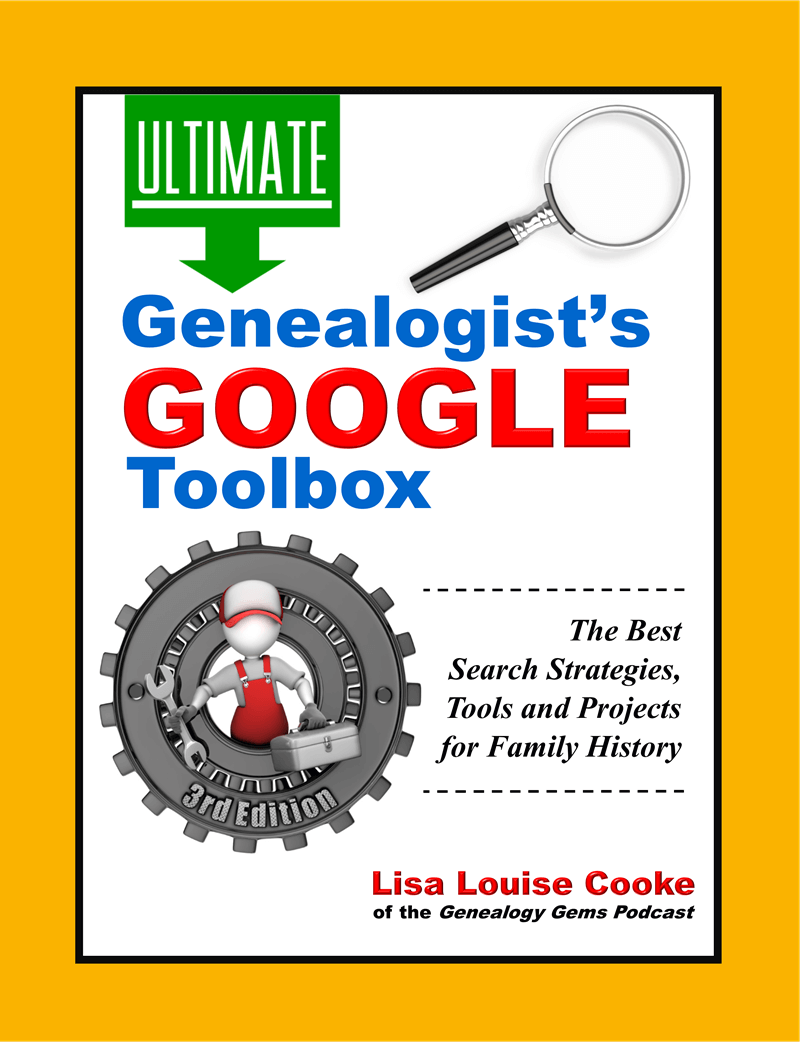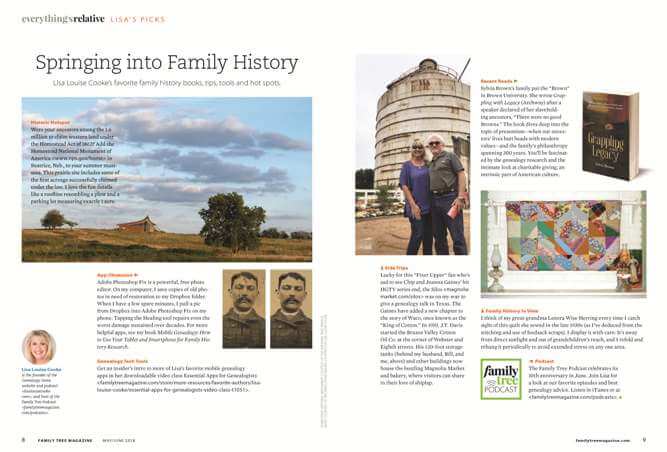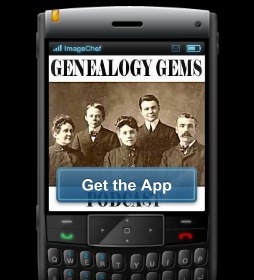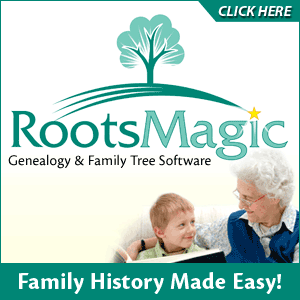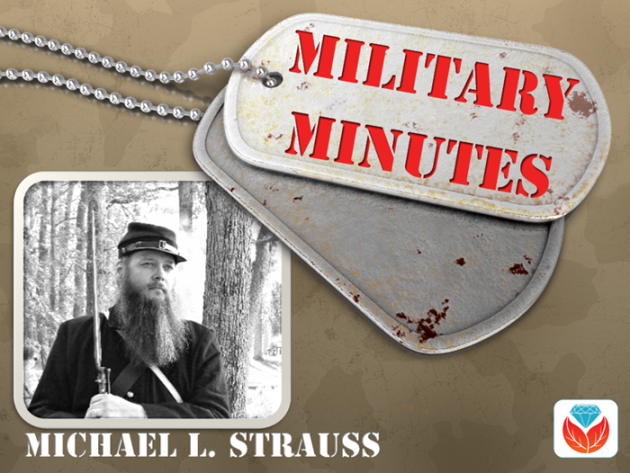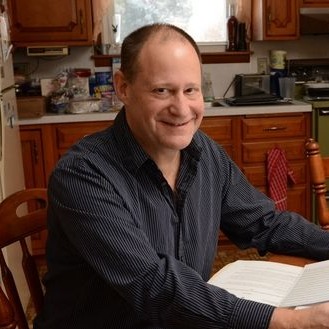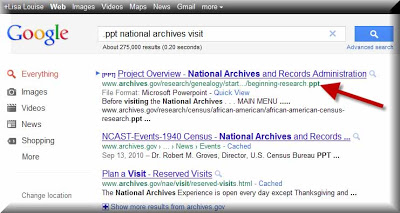A Shocking Family Secret and 3 Powerful Newspaper Search Tips
I used the British Newspaper Archive to make a shocking discovery in my husband’s family history was made with the help of these three powerful strategies. Read on to learn how to find more information on your ancestors in online historical newspapers. (This British Newspaper Archive link is an affiliate link and we will be financially compensated if you make a purchase. This helps support our free content like this. Thank you.)

The Research Question
Ever since I first started researching the family of my husband’s grandfather Raymond Harry Cooke, I have been aware that his mother, Mary Ann Susannah Cooke (maiden name Munns), died at a young age, around 40 years old.
What I didn’t know was how she died.
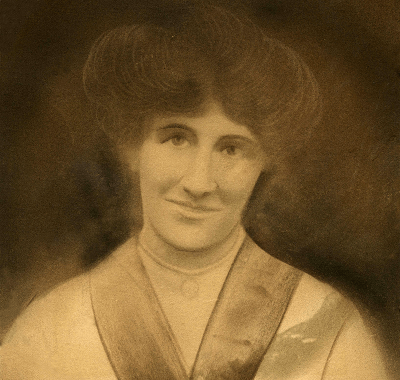
Mary Ann Susannah Cooke
In fact, Mary Ann Susannah Cooke has been one of the most elusive recent direct ancestors I’ve pursued. Up until about a decade ago we had never seen her face.
The image of Mary Ann (above) came to us through one of Bill’s first cousins. I had tracked her down in hopes of learning more about their shared grandfather, Raymond. Once we met I was thrilled to discover that Raymond had lived with her until his death at the age of 93 in 1987.
The cousin brought with her a dusty old box of his belongings. Inside we discovered the first and only known image of Mary Ann. (Genealogy Gems Premium members can learn more about this discovery and the methodology used to find the long-lost distant cousin in the Premium video class 9 Strategies You Need to Find Living Relatives.)
On the back of this cardstock image were notes written in Raymond’s own hand. The handwriting leads me to believe he may have added the notes later in life. This meant that I needed to be especially careful as I analyzed the information as it was likely from childhood memory.
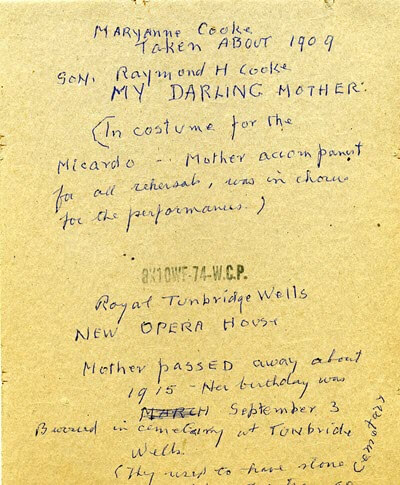
As you can see on the back of the image, Raymond states that Mary Ann died about 1915, and that her birthday was September 3. The birthday was close but incorrect. The actual recorded birth date was September 6.
The date of death was much farther off. Death records from the county of Kent show that Maryann was buried August 20, 1908, a full seven years earlier than Raymond remembered.
It’s not a surprise that his dates were off the mark. Raymond was just 14 years old when Mary Ann died. But the question remained: how did she die?
The Search
About five years ago, after writing a blog post about the British Newspaper Archive, I decided to do some digging in historic newspapers to see if I could find anything about Mary Ann’s death in Tunbridge Wells, England in 1908. With a search of Mary Ann Cooke in the website’s powerful advanced search engine I located the answer within minutes. It was devastating.
The Courier, August 31, 1908:
“Tunbridge Wells Woman’s Sad Death: Drowned in a Water Tank. The Inquest.”
“Mr. Thos. Buss, district coroner, held an inquest at the Town Hall, Tunbridge Wells, on Saturday morning, touching the death of Mary Ann Cooke, aged 41 years, whose body was found in a tank at the roof of her house, 49 Kirkdale road, the previous day.”
Suffering from prolonged depression, Mary Ann had drowned herself upstairs in the family home’s water tank. The newspaper provided a blow-by-blow of the coroner’s inquest, and the heart-breaking testimony of her husband, Harry.
And then came the final shock: Harry and Mary Ann’s 14 year old son Raymond had discovered the body.
After absorbing the story of Mary Ann’s untimely death, I was keen to see if I could learn more about the family. This is where some very powerful search strategies came into play and helped me find MUCH more in the British Newspaper Archive.
3 Powerful Newspaper Search Tips
1. Look for Search Clues in the Articles You Find
Finding an historic article on your ancestors can feel like the end of the research road. But actually, it’s just the beginning!
Go through the article with a fine tooth comb. Make note of every http://laparkan.com/buy-sildenafil/unique detail that could possibly be used in an additional newspaper database search. Here’s a list of what I found in the article about Mary Ann’s inquest. In the following steps I’ll show you how we put some of these into action.
Addresses – The Cooke’s address of 49 Kirkdale Road in Tunbridge Wells, was mentioned twice within the first two sentences of the article.
Name variations – I’m not talking about a variation in spelling, although those are certainly worth noting. In the case of newspaper research I’m referring to the varying ways that people are referred to in the newspaper. In the inquest article, Mary Ann Cooke was also referred to as “Mrs. Cooke.” This got me thinking about other ways that Mary Ann might be referred to, such as Mrs. Mary Ann Cooke, Mrs. M. A. Cooke, etc. In England, a boy Raymond’s age might be referred to as “Master Cooke.” Write down all variations you find, and then continue your list by adding the additional possibilities you can think of.
Neighbors – Mrs. Pout played a vital role on the day of Mary Ann’s death, and she served as a witness at the inquest. This was the first I had heard of her, and her name definitely made it onto my list of “searchables.”
Friends and Acquaintances – The names of Donald Thurkill (an employee of Mary Ann’s husband Harry), and the various doctors (Dr. Abbott, Dr. Grace, and Dr. Nield) were among the names I noted.
Occupations – Harry Cooke is described as a “coach builder.” Future searches of “coach builder” and “Cooke” together could prove fruitful in the future.
After assembling a comprehensive list of additional searchable words and phrases, I headed back to the British Newspaper Archive to search those leads.
2. Look Beyond Known Names
All of the naming variations I made note of in step number one could now be put to work. But before doing so, I realized that each option I came up with could actually be searched in two ways: Cooke with an “e” and Cook without an “e”. And I knew it was worth doing, because unfortunately my own name is misspelled in print on a regular basis.
Searching both “Mrs. Cooke” and “Mrs. Cook” resulted in even more articles. And in the article about “Mrs. Cooke,” Raymond was referred to as “Master Cooke.” Indeed, even more articles existed under that name as well. In the following example, I found Raymond’s name displayed three different ways!
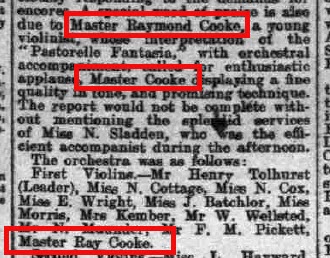
3. Go Beyond People
While finding your ancestor’s name in print in the newspaper is exciting, don’t underestimate the power of searching for other bits of information. Searching for addresses where they lived can put you in the middle of a wealth of new information about your family.
It isn’t necessary to include the surname of your family. In fact, I highly recommend that you don’t. The property where they lived has a history of it’s own. Simply searching the address can give you a kind of “house history” set of search results. These articles can potentially reveal who lived there before your family, descriptions of the home and its contents, and who your family sold the property to. In both the buying and selling of the property there is the potential to learn more about your family and possible further connections to others in the transactions.
In my case, I located an article about the Cooke home by searching the address 49 Kirkdale Road.
In the search results I discovered an article about the home being put up for sale several years before the Cooke family owned it. It was interesting to note that the previous owner had also been a coach builder, so it was a logical purchase for Harry Cooke when he decided to start up a coach building and horseless carriage mechanic shop of his own.
The final article I found in the British newspapers was also found only by address. The Cooke name was never mentioned, but indeed it did provide the slightest mention of the family: “Owner going abroad.” This article advertised the family home being put up for sale in 1912 in anticipation of their emigration.
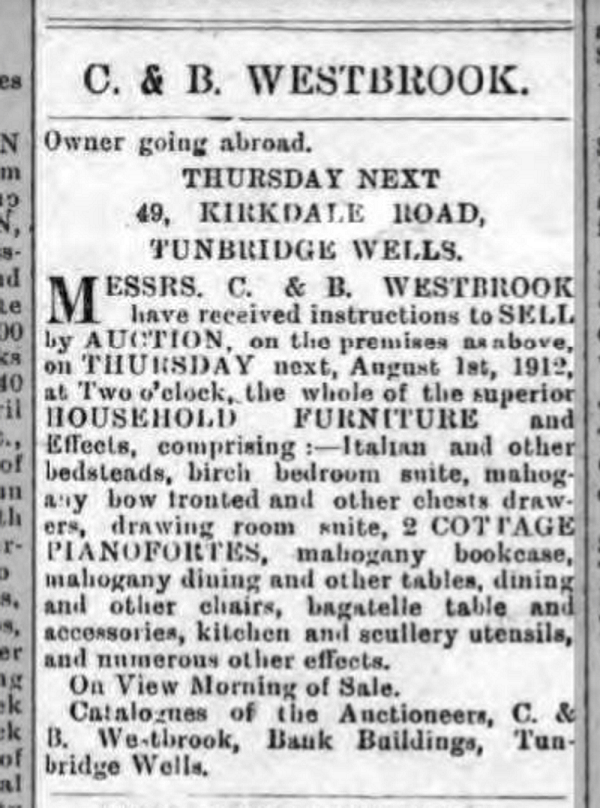
I admit I got a lump in my throat as I read of Mary Ann’s beloved pianofortes being sold. She was a skilled and talented musician who often played violin at the Tunbridge Wells Opera House and at garden parties around the countryside, and clearly she enjoyed playing the piano at home as she owned not one, but two “pianofortes.”
With the description of the inside of the home in the inquest article, the outside of the home in the “house for sale” newspaper advertisement that Harry first responded to, and now this article describing their possessions as they prepare to move to Canada, my newspaper research painted a much more complete picture of the Cooke’s life in Tunbridge Wells, England.
You can hear more about my search for Mary Ann’s story in the free Genealogy Gems Podcast episode #174.
More Resources from Genealogy Gems:
I’ve written additional article here at Genealogy Gems that I think you will benefit from and enjoy:
- 5 Most Popular Historical Newspaper Searches–and How to Improve Yours
- Can Google Help Me Search Digitized Newspaper Pages?
And if you’re a Genealogy Gems Premium member you have access to my video class Getting the Scoop on Your Ancestors in Newspapers.
If you’re not yet a member, you can learn more here.
Did these tips help you find your ancestors in old newspapers? Please leave a comment below. We all learn from hearing each other’s successes!


